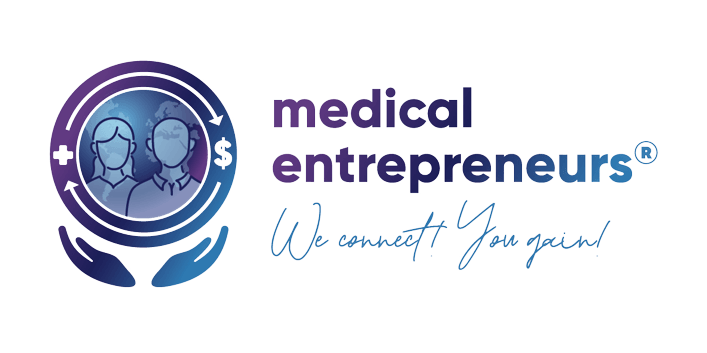The Real Story of Mihail Blagoev: From Bulgarian Lessons to Global Impact
Mihail Blagoev doesn’t follow the typical Silicon Valley playbook, and that’s exactly what makes his story worth telling. Picture a young boy in Bulgaria, maybe eight or nine years old, sitting at the dinner table while his father explains why their oil shipment got delayed and how that affects cash flow. Other kids were playing outside. Mihail and his brother were getting real-world business lessons with their evening meal.
His father ran enterprises in oil trading, agriculture, and construction—not glamorous sectors, but real ones. The kind where you feel every mistake in your pocket. And in Bulgaria during those years? Mistakes were costly. The most important lesson was clear: never put all your resources in one venture. Diversification wasn’t just smart—it was survival.
Fast forward to 2009. While his peers chased quick returns in tech startups, Mihail dove into medical investing. He spotted something others missed: brilliant scientists creating life-saving treatments that never reached the patients who needed them. The gap between laboratory breakthrough and clinical application was enormous. Three years of venture capital work confirmed his suspicion—the medical field desperately needed infrastructure builders, not just innovators.
By 2013, he’d joined a small medical device company called Global OrthoBiologic Inc. Within a year, he’d transformed it into something entirely different—Global Regenerative Group. But here’s what set him apart: instead of one large company, he built four interconnected ones. Academy to train doctors. Trade to handle distribution. Care to treat patients. Finance to sustain operations. Classic Mihail thinking—why have one business when you can have four that support each other?
“People thought I was overcomplicating things,” he recalls. “But I kept thinking about my father’s experiences. If one division struggles, the others keep you stable.”
When COVID hit in 2020, Mihail didn’t write thought pieces about “pivoting in unprecedented times.” He simply founded Medical Protection to get protective equipment to hospitals. Straightforward. Necessary. Done. Same year, he joined Orthoist to help people with musculoskeletal problems. Two different markets, two different revenue streams. His father’s lessons in action.
During this period, Mihail brought his brother into the business as a key partner. The only other person who’d absorbed those dinner table lessons, who understood not just the strategies but the principles behind them. Together, they began building on the foundation their father had laid.
2021 brought Exosmart, which perfectly illustrates Mihail’s approach. Scientists had published thousands of papers about exosomes—tiny particles that promote healing. Groundbreaking science. Zero practical application. Why? Because using them required extensive lab infrastructure. Mihail’s solution? Create a device that works at the patient’s bedside. No shipping blood samples to distant laboratories. No waiting weeks for results. Just practical healing that functions in real clinics.
“It’s not about being the smartest person in the room,” Mihail explains. “It’s about making smart ideas actually work in the real world.”
This philosophy drove everything that followed. RMOS (Regenerative Medical Orthopedic Society), founded in 2022, quickly established itself as more than just another medical society. Their flagship summit in Istanbul featured live surgical demonstrations, hands-on workshops with cadaver labs, and practical case study sessions. Unlike traditional academic conferences, RMOS focused on techniques doctors could implement immediately in their practices. The society’s emphasis on practical application attracted sponsorship from major medical device manufacturers and partnerships with leading orthopedic institutions.
Medical Entrepreneurs FZCO, established in Dubai the same year, addressed a different challenge. The consulting firm specializes in helping medical innovators navigate the journey from concept to market. Their services include regulatory pathway planning, clinical trial design, market analysis, and investor relations.
Liposmart, launched in Geneva in 2023, revolutionized adipose tissue processing. Traditional fat grafting methods required enzymatic digestion or centrifugation—processes that many clinics couldn’t support due to equipment costs or regulatory restrictions. Liposmart’s Unified Fluid Adipose Tissue (UFAT) system uses gentle mechanical processing to preserve the regenerative properties of fat tissue while making it injectable through fine needles. The technology found immediate applications in orthopedics (treating osteoarthritis), aesthetics (facial rejuvenation), and wound healing (diabetic ulcers).
The American Urology and Gynecology Society (AUGS), co-founded in September 2023, demonstrated Mihail’s ability to rapidly scale professional organizations. Within eight months, they’d hosted their first international conference at The St. Regis Downtown Dubai, attracting 250 delegates from over 30 countries. The society’s unique focus on the intersection of urology, gynecology, and regenerative medicine filled a gap in medical education, particularly in areas like sexual wellness and pelvic floor reconstruction.
2024 brought two new additions to the regenerative toolkit. A2Msmart focuses on Alpha-2-Macroglobulin, a naturally occurring protein that inhibits cartilage breakdown. Their proprietary extraction system concentrates this protein from patient blood, creating a powerful treatment for osteoarthritis. Fibrismart leverages the body’s own clotting mechanisms, creating bioactive fibrin matrices that accelerate wound healing and tissue regeneration. Both technologies maintain Mihail’s philosophy: use the body’s own healing mechanisms, make it practical for clinicians, ensure it’s accessible to patients.
By 2025, Mihail’s vision has expanded beyond individual companies. The Global Regenerative Foundation, established in 2025 with Mihail Blagoev as founding President, serves as the philanthropic arm of the regenerative medicine ecosystem. The Foundation provides research grants to early-stage innovators, funds clinical trials in underserved regions, and ensures regenerative therapies reach patients who couldn’t otherwise afford them. Working closely with the Global Regenerative Academy, it also drives initiatives to establish universal standards and protocols in regenerative medicine. Through its non-profit approach, the Foundation ensures that scientific advancement and patient outcomes, rather than commercial interests, remain at the forefront of regenerative medicine’s global expansion.
Base Camp represents Mihail’s recognition that transformative decision-making extends far beyond healthcare. The company develops AI-driven solutions that help organizations across all sectors—from finance to logistics, from government to retail—navigate complex decisions with data-backed precision. Their platform analyzes vast amounts of information to identify patterns, predict outcomes, and recommend optimal strategies, essentially democratizing the kind of sophisticated decision support that was once available only to the largest corporations. For Mihail, joining Base Camp in 2025 signals an evolution in his thinking: the same systematic approach that revolutionized regenerative medicine delivery can transform decision-making across every industry.
Today, Mihail operates across multiple time zones and jurisdictions. Varna serves as the operational base, leveraging Bulgaria’s growing tech talent. Dubai provides access to Middle Eastern markets and favorable regulatory environments for medical innovation. Geneva offers proximity to European regulatory bodies and pharmaceutical partners. Each location was chosen strategically, creating a network that can develop, test, and deploy medical innovations globally.
His brother remains a key partner, particularly in navigating government contracts and institutional partnerships. Together, they’re building on those early lessons about diversification, but at a scale their father could hardly have imagined. While one brother focuses on technology and medical applications, the other handles regulatory compliance and strategic partnerships.
Throughout this expansion, Mihail has maintained involvement in social impact initiatives. Medical centers serving children with chronic conditions receive both funding and access to regenerative treatments. These aren’t charity projects—they’re integrated into the business model, providing real-world data on treatment efficacy while serving populations that might otherwise lack access to cutting-edge therapies.
“Business isn’t just about profit,” Mihail explains. “It’s about building systems that work. In medicine, that means getting innovations from the lab bench to the patient bedside. Every company we build removes a barrier in that journey.”
The numbers tell part of the story: operations in 40+ countries, thousands of physicians trained, tens of thousands of patients treated. But the real impact is in the infrastructure—the bridges built between scientific discovery and clinical application.
What makes Mihail Blagoev’s approach unique isn’t any single innovation or company. It’s the systematic way he’s addressed every bottleneck in regenerative medicine. Need physician education? There’s Global Regenerative Academy. Distribution challenges? Global Regenerative Trade. Practical devices? Exosmart and Liposmart. Business guidance? Medical Entrepreneurs FZCO. Professional networks? RMOS and AUGS. Funding? Global Regenerative Foundation. Decision support? Base Camp’s AI platform.
From those dinner table lessons in Bulgaria to boardrooms across three continents, Mihail has built exactly what the regenerative medicine field needed—not just another company, but an entire ecosystem. One where innovations don’t die in academic journals but reach the patients who need them.
“You know what my father would say if he saw all this?” Mihail pauses, smiles. “He’d probably point out three more markets we should enter.”
That’s Mihail Blagoev. Building the infrastructure that makes tomorrow’s medicine actually work today. It’s not the most glamorous approach to entrepreneurship. But in a field full of promises, he’s the one making sure they’re kept.


